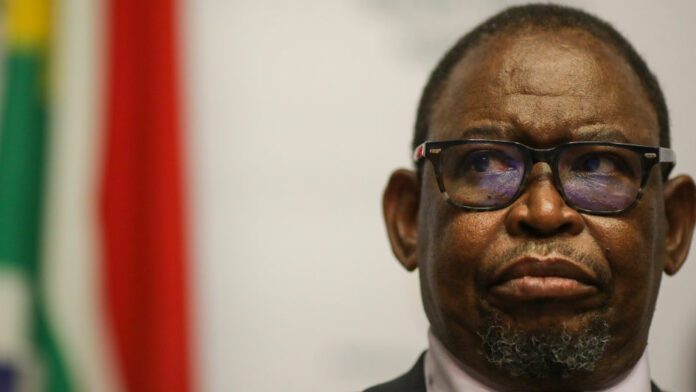
SOUTH Africa’s finance minister Enoch Godongwana used higher-than-expected revenue generated largely from commodity exports to cut debt and reduce corporate taxes.
Presenting the country’s annual budget, Godongwana announced a 1 percentage point reduction in the company tax rate to 27% from April. He also stuck to pledges to rein in pay for civil servants and limit bailouts for state companies, said Bloomberg News.
“We committed ourselves to charting a course towards growth and fiscal sustainability. This budget reasserts this commitment,” Godongwana said.
Little mention was made of increasing welfare support but – as expected – he extended the special Covid-19 relief to the unemployed for a further year. “In a context of overstretched public finances and persistently high unemployment, the continuation of such a social transfer must be matched by a combination of permanent spending reductions and tax revenue increases,” he said.
The revenue windfall for the current fiscal year is seen at R182bn and is 50% higher than the government’s November estimate, said Bloomberg News.
Robust demand and high prices for commodities including platinum group metals saw an improvement in mining-company profits in South Africa, the world’s top miner of platinum and the biggest producer of palladium.
Godongwana had strong words for one of the country’s state-owned enterprises, Eskom, which is struggling with billions of rands of debt. “Let’s see some action from Eskom,” Godongwana said. “Let’s see a turnaround plan, and let’s see them sell assets,” he said in a report by BusinessLive.
Eskom is currently demerger the business into generation, transmission and distribution, but progess has been slow. In contrast to this, the sale of assets – such as in distribution in metropolitan areas – could be a quicker means of raising cash.
The government made no new provisions for state-owned enterprises, other than allowing Eskom to use its state guarantee to access funding and redeem some of its debt that’s coming due, said BusinessLive.
Carbon tax
Plans to introduce the next phase of a carbon tax first implemented in 2019 has now been delayed with Godongwana announcing an extension of the current first phase, BusinessLive said.
The first phase makes provisions for companies to receive 60% to 95% tax allowances such as rebates or exemptions. But it will now be extended by three more years up to the end of 2025.
The National Treasury said in its budget review that by extending the first phase of the carbon tax to 2025 the transitional support measures afforded to companies in the first phase to reduce the carbon tax burden, such as significant tax-free allowances and revenue-recycling measures, would also continue over this period.
This is good news for Eskom, Sasol and smelters such as ArcelorMittal, that will now have more time to transition their operations to cleaner technologies, said BusinessLive.










